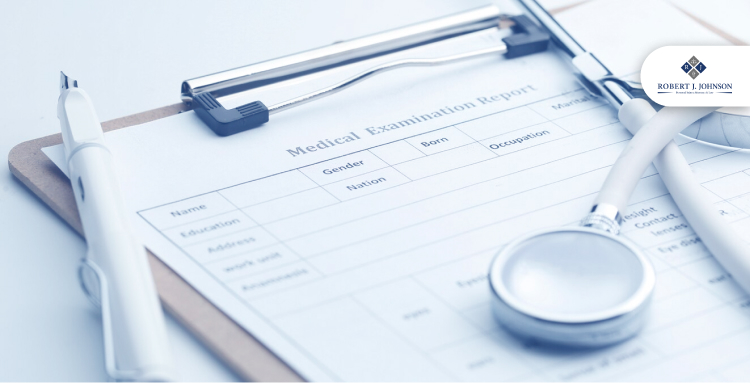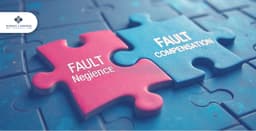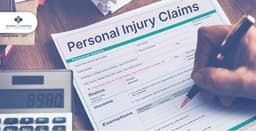
October 14, 2024
The Importance of Documenting Your Injuries and Treatment
When you’re injured, you only think about getting cured as soon as possible. But sometimes you are stuck with immediate medical attention. Those squeaky wheelchairs and bland walls of the hospitals, the prick of the needles, pain coursing through your body (I wish you aren’t), and the world spinning in a blur of confusion are enough to make you forget about keeping the records of your treatments.
In Florida, where personal injury claims are governed by strict laws and timelines, the importance of documenting your injuries and treatment cannot be overstated. With this vital documentation, you may find yourself standing alone, trying to prove the full extent of your suffering and its impact on your life.
Therefore, we will explore how each piece of evidence serves as a crucial thread to form a strong and successful personal injury claim, and why overlooking even the smallest detail could be the difference between achieving justice or facing defeat.
What steps you should take after you experience an injury?
Following a personal injury, it is critical to take quick and smart steps to safeguard your health, legal rights, and financial well-being. Here's what you need to do:
Step1. Seek Medical Attention Right Away:
Even if your injuries appear to be minor, it is critical that you consult a doctor. Some injuries may not be immediately visible, thus a medical report is essential for your claim.
Step 2. Document the site and Your Injuries:
If feasible, photograph or videotape the accident site, your injuries, and any property damage. Collect contact information from witnesses and take notes on what happened while it is still fresh in your memory.
Step 3. Report the Incident:
Depending on the type of the injury, report the accident to the proper authorities, such as the law enforcement, your employer, or property management. A police or incident report will serve as important evidence.

Step 4. Follow Medical Advice:
Stick to the treatment plan provided by your healthcare practitioner. Keep meticulous records of all medical appointments, treatments, and costs associated with your injury.
Step 5. Preserve Evidence:
Keep any incident-related papers, including medical records, bills, insurance correspondence, and any communications with the other party involved in the accident.
Step 6. Consult with a Personal Injury Attorney:
Before making any statements to insurance companies, it is best to speak with a personal injury attorney. They may advise you on your rights, assist you assess the worth of your claim, and negotiate on your behalf.
Step 7. What to do about having an auto collision injury?
Auto collision injury means minor injuries. These injuries don’t require large-scale treatment. All auto collision injuries must be documented in injury care clinics because without proper documentation your case will be closed.
Florida law mandates that injuries from an accident must be reported within 14 days. Recognizing the importance of timely medical documentation, Florida Injury Medical Centers offers round-the-clock access to physicians who are available 24/7 across the state to provide evaluations and treatment.
You can learn more about vehicle registrations, driver licenses, and traffic safety from The Florida Department of Highway Safety and Motor Vehicles (DHSMV) primarily.

Types of Injuries to Document Immediately
Visible Injuries: Injuries that are immediately visible, such as cuts, bruises, fractures, or lacerations, should be documented right away.
Head Injuries: Any head trauma, including concussions or skull fractures, requires immediate medical evaluation and documentation.
Neck and Back Injuries: Injuries to the neck or back, such as whiplash or herniated discs, can have delayed symptoms. Documenting these injuries as soon as possible helps establish a timeline for treatment and recovery.
Soft Tissue Injuries: Sprains, strains, and other soft tissue injuries can be less visible but equally serious. Medical evaluations and treatment plans are essential for these types of injuries.
Internal Injuries: Any symptoms indicating potential internal injuries, such as abdominal pain or difficulty breathing, should be documented and treated immediately. 6. Psychological Injuries
Immediate documentation of these injuries is vital for several reasons:
Legal Evidence: Thorough documentation strengthens your personal injury claim by providing clear evidence of the injuries sustained and their impact on your life.
Medical Treatment: Early documentation ensures that you receive appropriate medical care, which is crucial for recovery and for establishing a medical history related to the incident.
Insurance Claims: Insurance companies require detailed documentation to process claims effectively. Without it, you may face challenges in receiving fair compensation.

Which types of essential documentation do you need?
To ensure fair compensation, the following types of documentation should be gathered:
Medical Records and Bills: These are important for demonstrating the nature and severity of injuries, as well as the treatments received. They provide proof of the injuries sustained and medical costs.
Witness Statements: Collecting statements from individuals who witnessed the accident can help strengthen your claim.
Police Reports: These documents provide an official account of the incident and can be crucial in supporting your claim.
Photographs and Videos: Visual evidence of the accident scene, injuries, and any property damage can significantly bolster your case.
Personal Journals: You can maintain a diary detailing your recovery process and how the injuries affect your daily life It can provide additional context and evidence of pain and suffering.
How does proper documentation impact Claim Success?
The success of a personal injury claim largely depends on how well you document everything. Good medical records clearly show how serious your injuries are, what caused them, and how much they’re costing you, including medical bills, lost wages, and emotional pain.
If your documentation is weak or incomplete, it could lead to you getting less money than you deserve or even having your case dismissed.
What are the most common mistakes people make when documenting their injuries?
When documenting injuries following an accident, people often make several common mistakes that can undermine their personal injury claims. Here are the most notable errors to avoid:
Delaying Medical Treatment: One of the most significant mistakes is delaying medical treatment. Many people wait to see if their condition improves on its own, which can lead to complications. Immediate medical attention not only ensures proper care but also establishes a clear connection between the accident and the injuries. Delays can raise doubts among insurance companies and courts regarding the severity of the injuries claimed.
Failing to Document Everything: Another frequent error is not documenting all relevant details. This includes neglecting to take photographs of the accident scene, injuries, and property damage, as well as failing to keep records of medical treatments and conversations with witnesses.
Not Following Medical Advice: Ignoring or failing to follow medical advice can severely impact a case. If individuals do not follow prescribed treatments, insurers may argue that the injuries are not as serious as claimed. Giving Too Much Information to Insurance Companies.
Provide excessive information to insurance: Sharing too much information to the adjusters without legal counsel. Insurance representatives may seem friendly, but their primary goal is to minimize payouts. Anything said can potentially be used against the claimant, so it is crucial to consult with a personal injury attorney before discussing details with insurers.
Settling Too Quickly: Many victims rush to settle their claims, often accepting the first offer from insurance companies, which is typically lower than what they need.

How our attorneys can help you to handle your claim?
Our personal injury lawyers have extensive expertise in navigating the complexities of personal injury law. They understand the legal process, deadlines, and strategies to build a strong case. Their negotiation skills often result in higher settlements compared to what victims could achieve on their own. Attorneys understand the legal system, know how to build a strong case, and are prepared to take the case to trial if necessary.





























